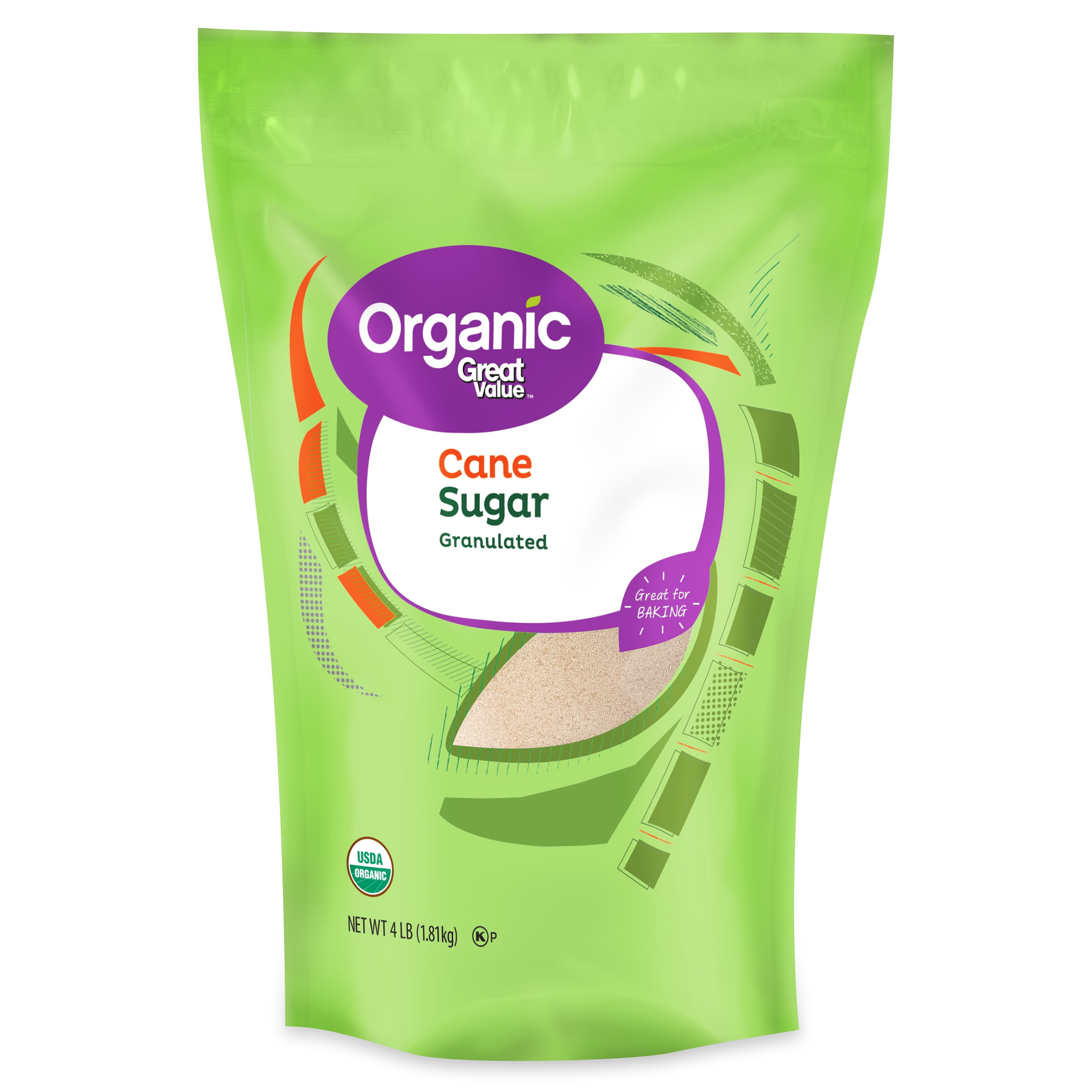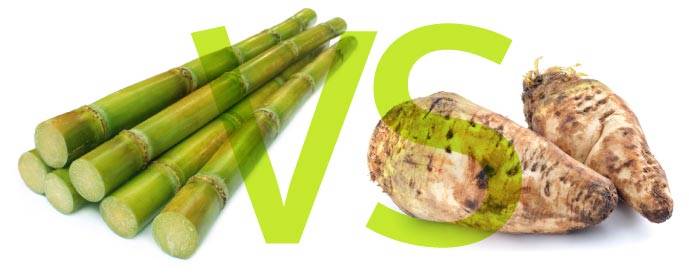A Thorough Summary of the Health and Economic Effects of Cane Sugar Processing on Regional Neighborhoods
Walking cane sugar processing plays a critical role in shaping the financial landscape of local areas, supplying work opportunities and promoting supplementary sectors. The wellness implications linked with high sugar intake can not be neglected, as they contribute to climbing prices of obesity and diabetes mellitus.
Economic Advantages of Walking Stick Sugar Handling
Cane sugar processing offers significant financial advantages that expand past the prompt farming market. The farming and handling of sugarcane develop various work chances, from farming to manufacturing and circulation. This work generation not only supports local economic situations however also cultivates community growth by supplying secure earnings resources for households.
In addition, the sugar market stimulates secondary organizations, including transportation, tools supply, and product packaging services (Cane Sugar Processing). As these markets grow, they contribute to an extra durable financial framework, improving general community strength. The export capacity of refined walking stick sugar additionally enhances economic advantages, positioning regions as affordable players in worldwide markets
Financial investment in modern processing facilities can bring about boosted performance and efficiency, thereby lowering waste and enhancing source use. This change not only profits the local economic climate yet likewise supports sustainability initiatives by reducing environmental impacts.
Furthermore, the revenue created from walking stick sugar handling can be reinvested in local framework, education and learning, and medical care, advertising alternative area growth. Overall, the financial benefits of walking stick sugar handling are multifaceted, providing a structure for withstanding prosperity in farming areas.
Health Dangers Linked With Sugar Intake
Excessive sugar intake poses substantial health and wellness risks that require severe attention. High consumption of added sugars, specifically from refined foods and drinks, has actually been linked to various wellness complications.
Additionally, high sugar usage is linked with cardio disease. Elevated blood sugar level degrees can cause insulin resistance, a precursor to various heart-related concerns. Furthermore, sugar can have damaging results on oral wellness, causing cavities and gum tissue condition, as germs in the mouth prosper on sugar, generating acids that wear down tooth enamel.
Furthermore, arising study suggests a possible link between high sugar intake and mental health and wellness disorders, such as clinical depression and anxiety. As neighborhoods grapple with these wellness risks, it ends up being vital to promote understanding and urge healthier dietary selections. Attending to sugar intake is essential not only for private health however additionally for the total wellness of local neighborhoods, emphasizing the demand for detailed public health and wellness methods.
Ecological Influences of Sugar Manufacturing
Frequently overlooked in discussions regarding sugar's effects is the substantial ecological influence of sugar manufacturing. The cultivation of sugarcane usually demands extensive land use, bring about logging, loss of biodiversity, and disturbance of neighborhood communities. The conversion of forests and wetlands into sugar plantations can lead to environment damage, threatening various species and changing ecological balance.
In addition, sugar manufacturing is resource-intensive, consuming significant amounts of water for watering. This can result in depletion of regional water sources, adversely influencing both farming methods and neighborhood access to tidy water. Furthermore, making use of chemical plant foods and pesticides in sugarcane farming can add to soil degradation and water contamination, as runoff from these chemicals gets in close-by rivers and lakes, impacting marine life and human health.
The ecological impact expands to the handling stage, where power consumption and waste generation more worsen environmental issues. Air contamination from burning sugarcane areas, weblink in addition to greenhouse gas exhausts, add to environment adjustment. Thus, the ecological implications of sugar manufacturing warrant serious consideration, prompting stakeholders to embrace even more sustainable techniques to alleviate these adverse impacts on neighborhood ecosystems and areas.
Job Production and Community Growth
The environmental difficulties posed by sugar production are typically counteracted by its capacity for financial advantages, particularly in job development and community development. The walking cane sugar industry works as a substantial source of work in lots of country areas, providing work throughout various skill levels, from farming labor to processing and distribution functions. This work not only sustains specific family members but likewise adds to the overall economic vitality of neighborhood communities.
Additionally, the facility of sugar handling centers promotes supplementary services, such as transportation services, equipment supply, and upkeep suppliers. As these organizations grow, they create added tasks and boost neighborhood economies. The income produced from the sugar market likewise causes increased tax incomes, which can be reinvested into neighborhood services such as framework, education and learning, and health care growth.
Moreover, the sugar learn this here now sector typically engages in community development efforts, such as supporting neighborhood institutions and health and wellness programs, thus boosting the high quality of life for homeowners. By cultivating solid community connections and advertising financial growth, the walking cane sugar processing field plays an essential duty in uplifting local populaces, making it a crucial element of sustainable growth strategies in sugar-producing regions.
Harmonizing Wellness and Economic Development
In browsing the complexities of walking cane sugar handling, an essential challenge exists in balancing health and wellness factors to consider with economic development. The sugar sector considerably adds to local economic situations by generating work, promoting relevant sectors, and enhancing tax obligation profits. Nonetheless, the wellness implications connected with excessive sugar usage can cause persistent illness such as excessive weight, diabetes, and cardiovascular issues, which can worry public wellness systems and diminish workforce performance.

In addition, regulatory structures can play a critical duty in guiding market methods towards more health-conscious and sustainable strategies. By fostering cooperation between government bodies, wellness organizations, and blog here the sugar market, communities can browse the duality of wellness and economic development, ensuring that the benefits of walking cane sugar handling are equitably shared while prioritizing public health and wellness.
Final Thought
Finally, the processing of walking cane sugar offers both substantial financial benefits and noteworthy health and wellness dangers for regional areas. While it fosters job creation and promotes regional growth, the associated health concerns, particularly relating to excessive weight and diabetes mellitus, demand a cautious balancing act. By promoting responsible intake and investing in area education and sustainable practices, it is feasible to make best use of economic benefits while reducing adverse wellness results, thereby guaranteeing a healthier future for neighborhood populaces.
Furthermore, sugar can have destructive impacts on oral wellness, resulting in tooth cavities and gum tissue condition, as germs in the mouth thrive on sugar, producing acids that erode tooth enamel.
Addressing sugar intake is important not only for specific health and wellness yet also for the total wellness of regional neighborhoods, emphasizing the need for comprehensive public wellness strategies.
Frequently ignored in discussions concerning sugar's ramifications is the substantial ecological impact of sugar manufacturing. The health implications associated with too much sugar consumption can lead to persistent diseases such as obesity, diabetes, and cardio issues, which can worry public health and wellness systems and diminish labor force productivity.
